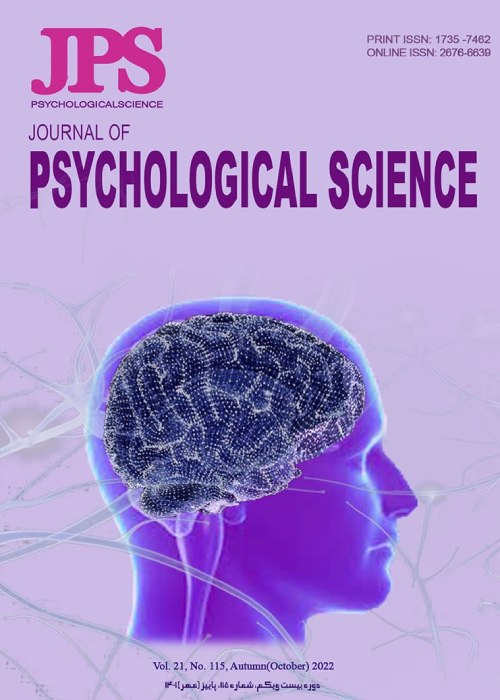Efficacy of lifestyle change training on improving self-efficacy, outcome expectations and reducing locus of external control in students
Studies have shown that lifestyle change through regulation and orientation to human life is effective on improving individual-educational determinants but a study which addresses the impact of this training on students' self-efficacy, outcome expectations and source of control has been neglected.
The aim of this study was to determine the effectiveness of lifestyle change training on improving self-efficacy, outcome expectations and reducing locus of external control in students.
This study was an experimental study with pre-test, post-test with control group. The research population included all students of Islamic Azad University, Tehran Research Sciences Branch in the first semester of the academic year 2020-2021. The study sample included 40 students who were selected by two-stage cluster sampling method and, then, were assigned into experiment and control groups (20 individuals per group) through random assignment method. The research tool were the scales of General Self-Efficacy (Schwarzer and Jerusalem, 1995), Student Outcome Expectations (Landy, 2003) and Source of Control (Rotter, 1966). For the experiment group, lifestyle change training (Van Pay, 2018) was held in eight 90-minute sessions, but the control group did not receive any intervention. Analysis of covariance was used to analyze the data.
The results showed that lifestyle change training was effective in increasing students' self-efficacy, outcome expectations and reducing locus of external control (p<0.01).
Lifestyle change training can be used by therapists as an efficient way to improve students' self-efficacy and outcome expectations and reduce their external control beliefs, and thus help their academic-career success.
-
Comparing of the Effects of Lifestyle Changes Training and Positive Psychology Components on Students' Self-Efficacy, Outcome Expectations, and Mental Health
Zohreh Mohammad Alipour, Seyed Abdol Majid Bahrainian*, Ali Asghar Asgharnejad Farid
Middle Eastern Journal of Disability Studies,



